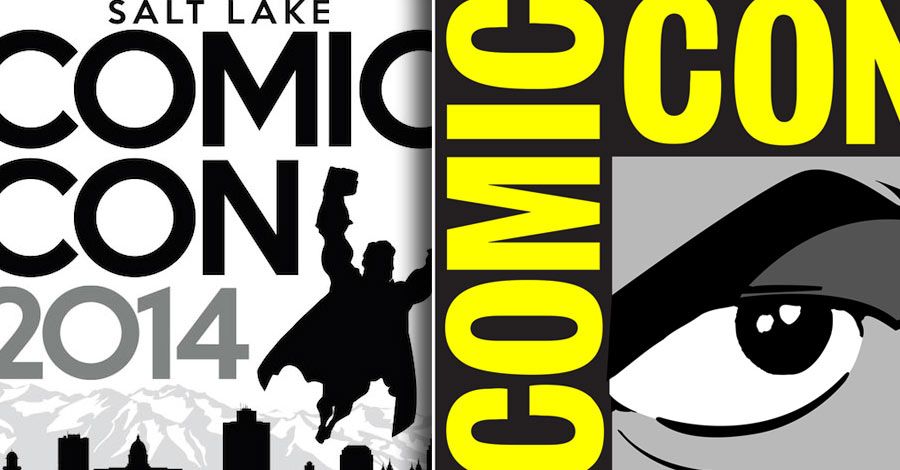Comic-Con International has sued Salt Lake Comic Con, accusing the fledgling Utah convention of trademark infringement and attempting to "confuse and deceive" fans and exhibitors with its use of the term "Comic Con."
In a complaint filed Thursday in San Diego federal court, and first reported by The Salt Lake Tribune, Comic-Con International seeks damages and an injunction preventing Salt Lake organizers from using any variation of the "Comic-Con" name.
The lawsuit arrived less than two weeks after Comic-Con International sent a cease-and-desist letter accusing the fledgling convention of trademark infringement, and just a day after Salt Lake Comic Con producers issued a press release -- their second one on the matter -- vowing the September convention "won't be stopped by San Diego."
Comic-Con International, which owns the trademarks for "Comic-Con," "Comic Con International" and "Anaheim Comic-Con," accuses Utah organizers of capitalizing on its "creativity, ingenuity and hard work" by using the term "Comic Con" to promote their event. The complaint claims Salt Lake Comic Con's actions are "causing irreparable harm" to Comic-Con International by "confusing and misleading consumers."
"It's pretty aggressive," Salt Lake Comic Con co-founder Bryan Brandenburg told the Tribune. "We really feel like they don't have a basis for this. We thought there might be some more ammunition with a formal lawsuit, but they still don't have a leg to stand on."
Salt Lake Comic Con debuted in September 2013, drawing 70,000 people to its inaugural event and a reported 100,000 to its April spinoff FanXperience.
The lawsuit, like the C&D letter, cites the customized Audi sent last month to San Diego to promote Salt Lake Comic Con during Comic-Con International, saying Utah organizers intended to "create a false association" between the two events and confuse and deceive Comic-Con convention attendees, exhibitors and fans." It also singles out an April interview in which Brandenburg said, "We knew that the term 'comic con' is kind of like a Xerox, it's a generic brand. All it means is comic convention, but we knew that there was brand equity associated with the phrase that we could capitalize on, being the only comic con in our market."
Additionally, Comic-Con takes issue with Utah organizers distributing the C&D letter to news media "to create a media frenzy and reap the publicity benefits for their Salt Lake Comic Con convention in September."
Salt Lake Comic Con producers maintain nobody holds the trademark to "Comic Con," without the hyphen, and points to the countless conventions around the world that use the term.
In a press release issued Wednesday, before the lawsuit, organizers stated, "Salt Lake Comic Con's attorneys are 100 percent confident that they will prevail as precedence against claims like this has been established by other Comic Cons and other trade shows including New York and Chicago. [...] By threatening Salt Lake Comic Con, San Diego threatens all conventions that use a variation of Comic Con. In the United States alone that number exceeds more than 100 conventions and the number increases significantly with international events."
A section of the Salt Lake Comic Con website is devoted to the legal dispute with Comic-Con International.
The Tribune notes that the conflict between the two conventions dates back several months, to when Salt Lake organizers announced their FanXperience event for the same weekend as Comic-Con International's WonderCon. Brandenburg contends that was the only date available at the Salt Palace Convention Center, and that WonderCon hadn't yet publicized its dates.

